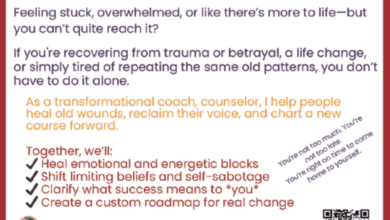Rogue Valley Working Together
 Sarah Red-Lairde of Bee Girl and Gregg Marchese, Permaculturist with Wild Things from the Ford Foundation Institute Leadership Program’s Ashland Cohort 2 Bee Tree Project- A collaboration of two proposed class project ideas, a Food Forest and Bee Pollinating Garden.
Sarah Red-Lairde of Bee Girl and Gregg Marchese, Permaculturist with Wild Things from the Ford Foundation Institute Leadership Program’s Ashland Cohort 2 Bee Tree Project- A collaboration of two proposed class project ideas, a Food Forest and Bee Pollinating Garden.
Molly Kreuzman of Coyote Trails’ Jefferson Nature Center.
How did you get involved with the Ford Institute?
S- I was teaching a bee class at the Nature Shop in Ashland when Treasa Cordero Runzi, a facilitator/ coordinator/ advocate for The Ford Foundation Institute Leadership Program told me about the program. It is so exciting that the group has chosen the Bee Tree Project. So many great ideas were brought to the table. I am elated that our group is as excited as I am about local food and honey bees. Bees are dying at alarming rates and they need all the help they can get.
G- I heard about the program through a friend. It was also announced on the permaculture list.
What has been your most intimate or unusual experience you’ve had with bees?
S- While I worked for the University of Montana I taught bees to sniff out landmines and bombs.
Really, that must bee tricky even for a bee whisperer!?
S- We taught the honey bees to associate food with the scent of explosives. We would then send the bees out into the field to detect where landmines were located. A LiDAR (an optical remote sensor) sweeps the field and sends a signal to us as to where the bees are and hence the location of the explosive.
How do we break the mythical fears people have towards Bees?
S- The bottom line is education. The fears that people have about bees are primarily misconceptions. Honey bees do not swarm people, swarming is their way of traveling. While foraging away from the nest, no bee is looking for conflict and will only sting as a last resort-perhaps as a result of being swatted or squashed, or accidentally being caught in someone’s clothing. 90% of bee stings are from the wasp family. As far as bee allergies go, only 1- 2% of our population are deathly allergic.
I understand that the Jefferson Nature Center was chosen for the project site, how do you feel about that choice?
S- The JNC has enormous potential, being a diamond in the rough for the entire Rogue Valley. I feel it is a great opportunity to give of our talents from Ashland to the Rogue Valley community instead of keeping them in our city limits.
M- The Coyote Trails’ Jefferson Nature Center specializes in teaching primitive living skills, not just Native Americans, but all indigenous people from all of our common ancestries. Everyone built fires, shelters, collected food, the fact of the matter is the people of Medford and the surrounding areas can share their knowledge. There is lots of sinergy happening around this project, meaning connections and reconnections on the human level.
Who do you think will be the main visitors to the Bee Tree Project?
S- I think the JNC will be a great destination for school field trips and for the entire community.
M- We are right off the green way, centrally located, and easily accessible to public transportation. We offer something to the valley that has not been there before, we are a bridge and so is the location.
How did the food forest/permaculture component come into the concept?
S- Gregg Marchese, an expert permaculturist in our class suggested that a permaculture food forest would be easily integrated into a pollinator project. One of the most important aspects of permaculture is planting for pollinators.
What is so import about Permaculture?
G- It is a system for food sustainability for our future. It provides a way for people to reverse patterns of history, to come back to local foods, community, sustainability, and self reliance. It is an opportunity for renewal from the creation of earth’s fertility.
Why is JNC the best fit?
S- There is a lot of resistance with beekeeping in the Ashland City limits. We hope this changes in the future. The canvas that JNC provides is an opportune place for a pollinator/food forest garden.
M- Part of what we love about Bee Tree Project is that it also stems on education and outreach. When you have volunteers on a project it denotes a level of passion for the project. We already had a pollinator garden in the master plan so it was such a seamless fit to the JNC. JNC runs with big dreams and a small budget. The cohort is making part of our dreams come true.
What is the main objective to carrying out a project such as this?
S- The objective to our project is to provide a demonstration site to show local gardeners, school groups, farmers, orchard growers, and others how to plant for food/pollinators in the Rouge Valley and to incorporate them into their land management plans. Also, to show how easily our project can be replicated at other sites and to provide information on how to feed our community and recognize the plight of our native and managed honey bees.
What’s it like to be a specialist?
G- Understanding and working with nature is a humbling experience as is aspiring to an expert status. It is very exciting and fulfilling to see and experience the results over time.
S- First I would say that I am one of many bee experts in the valley. It is flattering to be able to advocate for something that I am so passionate about. There are a lot of beekeepers in the Rogue Valley that continue to need help with their bees. Bee Girl’s mission is to preserve honey bees, beekeepers, and food resources by providing outreach, education, support, and mentorship for beekeepers and communities.
What would you say to people that are working on creating expert status for themselves in the field of their choice?
G- Be careful of identifying people in a given field. Keep a broad mind. Expertise is empowering and a confidence thing. Continue to be ever improving in any area of expertise.
M- We had a 15 year old girl from New Jersey show up in our class wearing short shorts, a cut off shirt, full make up, lots of jewelry because her father sent her. Within a week of learning primitive living and self sufficiency, she asked if she could stay. It was a moment i will never forget. To see a young woman find her self worth, is life changing.
S- You have to follow your bliss and do what feels right, dive into it wholeheartedly and don’t let anyone tell you that you can’t do it. Have compassion for the “nay say-ers” and keep moving forward with your dream. Bee determined and keep the buzz in it!
Bee Tree Project: Tax-deductible donations:
CTSN as the payee on your check with BTP in the memo line.
Send to:
Katharine Danner
575 Nyla Lane
Ashland, OR 97520
Beetree@
FFILP:
www.tfff.org.
CTJNC
www.CoyoteTrails.org
Example of a Food Forest: http://www.kickstarter.com/




